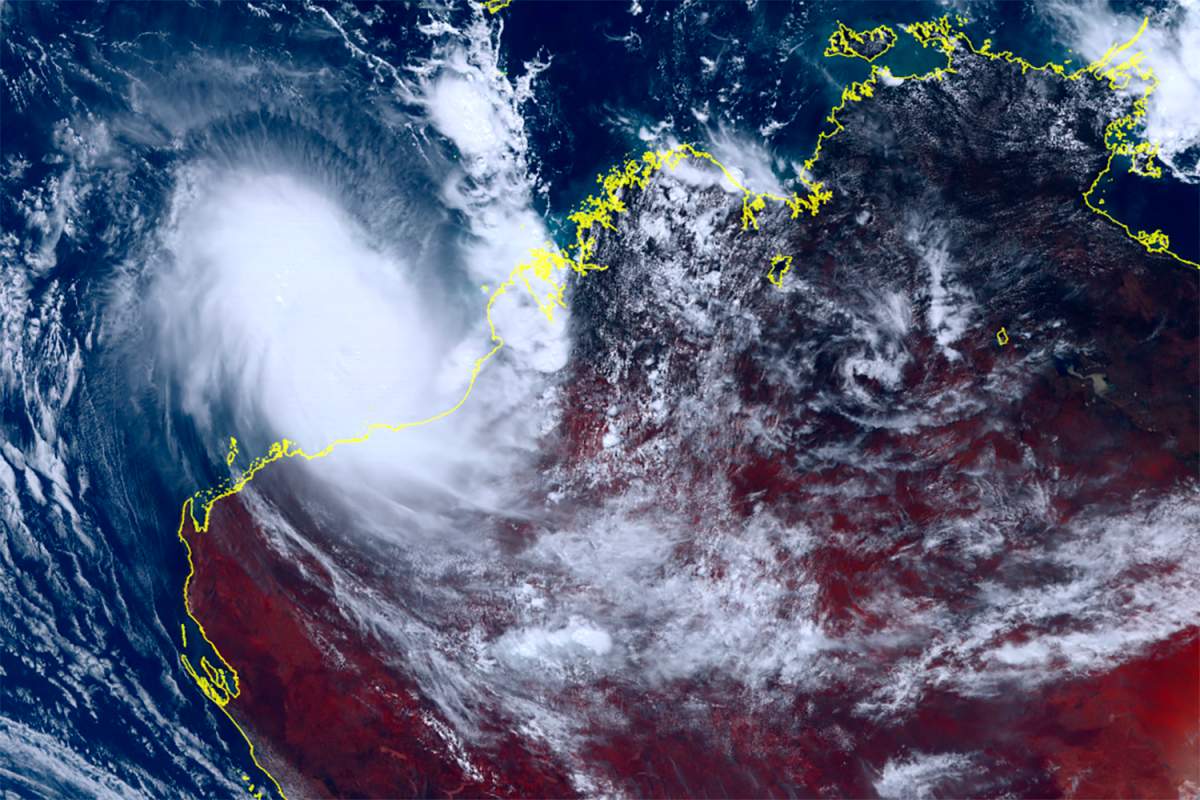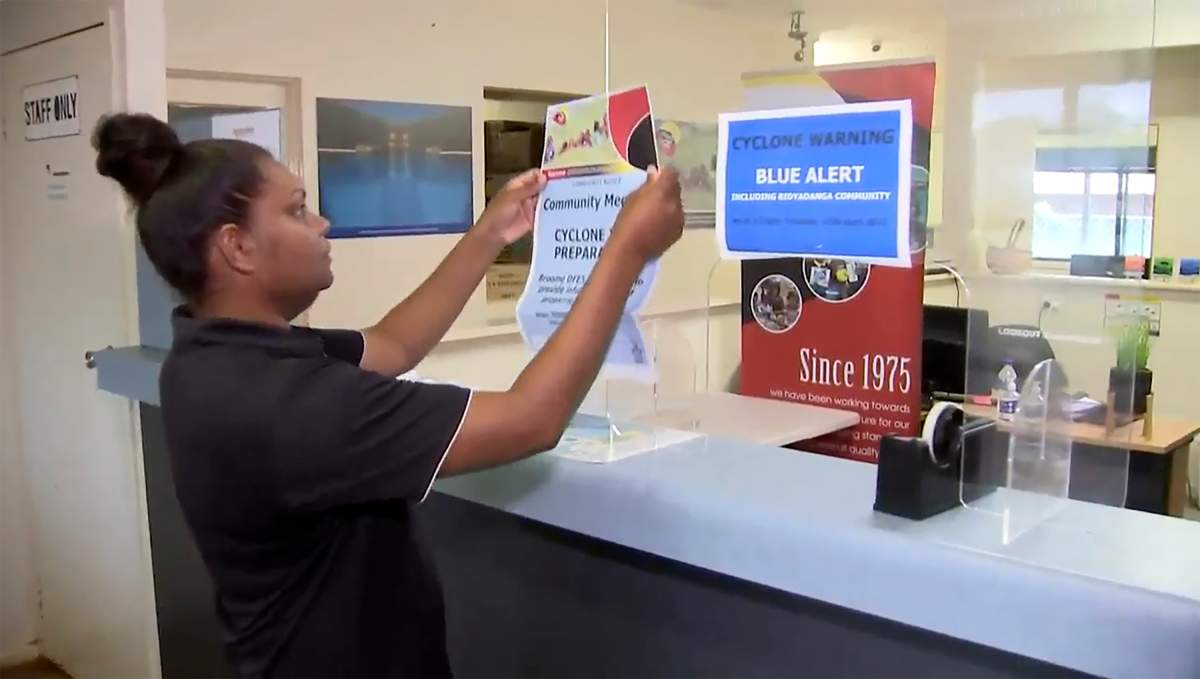A tropical cyclone nearing Australia is forecast to be the most powerful storm in 12 years to hit the country, bringing wind gusts of up to 315 kilometres per hour as it crosses the northwest coast, meteorologists said Thursday.

Cyclones are common along the sparsely populated Pilbara coast of Western Australia state and fatalities are rare, but authorities fear that Cyclone Ilsa’s extraordinary wind speeds could take some in its path by surprise.
Ilsa reached the highest Category 5 intensity Thursday over the Indian Ocean and is expected to maintain that destructive level as it crosses the Pilbara coast by early Friday, Australia’s Bureau of Meteorology said.
Category 5 cyclones have mean wind speeds exceeding 200 kph with gusts exceeding 280 kph. They typically cause widespread destruction, the bureau said.
The last Category 5 storm to cross the Australian coast was Cyclone Yasi in 2011. Yasi caused hundreds of millions of dollars in damage in the east coast state of Queensland. The only death blamed on the storm was a man killed by exhaust fumes from a electricity generator he had used in a confined space.
In 2019, Category 5 Cyclone Veronica did not cross the Pilbara coast, but damaged infrastructure and disrupted the region’s mining and offshore gas industries.

Get daily National news
Ilsa is expected to cross the coast somewhere in a 220-kilometre span between the iron ore export town of Port Hedland and Wallal Downs Station, a 200,000-hectare cattle ranch to the east.
Those close to where Ilsa makes landfall will experience gusts of up to 315 kph, the bureau said.
The storm’s expected landfall is near the remote Pardoo Roadhouse and Tavern where manager Will Batth planned to shelter.
“We haven’t had any as strong as this in many years. This is a big one,” Batth said. “There’s no point in worrying. I can’t stop it.”
On Thursday, police closed the highway along the Pilbara coast between Port Hedland and the tourist town of Broome, 610 kilometres to the northeast, to prevent motorists from risking the worsening conditions. Authorities expect the North West Coastal Highway will be impassable due to flooding before Ilsa passes.
Port Hedland and Broome are the largest population centers in the Pilbara region with 16,000 and 15,000 people respectively.
Bidyadanga, home to around 700 people midway between Wallal Downs Station and Broome, stocked enough food and fuel by Thursday to last a week in case the community is isolated by floodwater. Bidyadanga CEO Tania Baxter said maintaining the community’s electricity would be critical to how they weather the storm.
“Without power, we haven’t got water and possibly even communications,” Baxter said. “So if we can maintain power supply, then we’ll be fine. We’ll manage everything else that comes with it and any damage that comes.”
Many in the cyclone’s path have evacuated in recent days. In Port Hedland, from which the world’s largest bulk export port sends Australian iron ore around the globe, evacuation centers have opened to people whose homes might not withstand the storm, Mayor Peter Carter said.
“Everyone is on edge,” Carter said. “They understand that cyclones are what they are. They’re very, very unpredictable.”
Long-term Port Hedland resident Julie Arif, who has experienced several cyclones, said she was concerned for those in Ilsa’s path.
“They’ll be prepared and riding it out. But it is still terrifying, absolutely terrifying,” Arif said. “When you’re inside in a house and there’s just the roar of the wind outside and thumping and banging and crashing. And cyclones happen at nighttime. You don’t know what it is and it’s frightening.”
The weather bureau warned of damaging winds, flooding rain and abnormally high tides along the Pilbara coast as Ilsa passes.
Many people in the Pilbara region are involved in the mining and cattle industries or are tourists taking advantage of the school vacation period that began this week.









Comments
Want to discuss? Please read our Commenting Policy first.